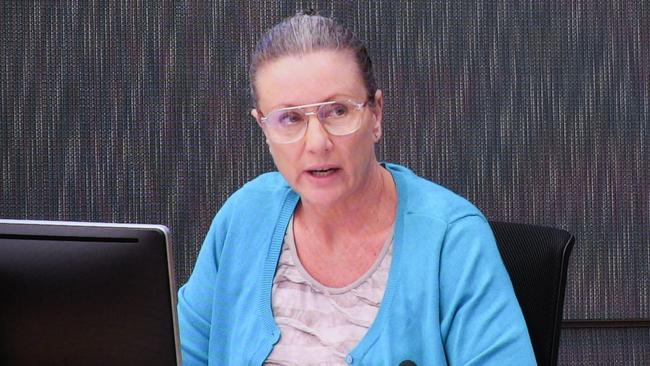Kathleen Folbigg diaries ‘not admissions of guilt’, say psychiatric experts
An inquiry that could overturn the conviction of child killer Kathleen Folbigg has heard her allegedly incriminating diary entries were not an admission of guilt.

An inquiry that could overturn the conviction of child killer Kathleen Folbigg has heard her allegedly incriminating diary entries were not an admission of guilt but the mental release of a grief-stricken mother, as her former husband rejoins legal proceedings.
The second tranche of the inquiry, which resumed on Monday, will hear from psychological experts who will tell the inquiry that Folbigg’s highly incriminating diaries should be interpreted as being written by a “grieving mother” and not as the confessions of a killer.
Written over the decade in which her four children Caleb, Patrick, Sarah and Laura died, the diaries were a compelling piece of evidence in the 2003 trial at which she was convicted of three counts of murder and one of manslaughter.
Since then, emerging genetic evidence has suggested her daughters could have died from a rare mutation, which Folbigg also carries, linked to heart irregularities called calmodulin.
The children’s father, Craig Folbigg, who has long disputed any genetic explanation for his children’s deaths, was represented at Monday’s hearing by former NSW Crime Commissioner Peter Hastings QC, who told the inquiry the process caused his client “great distress”.
Mr Folbigg had previously announced he was withdrawing from the inquiry and has refused to give a sample of his DNA.
While a 2019 inquiry into her conviction put significant emphasis on the diaries and pitted scientific experts against each other in what Folbigg supporters have dubbed “adversarial” proceedings, the second inquiry appears to be taking a more sympathetic approach.
Clinical psychologist Patrick Sheehan and forensic psychiatrists Kerri Eagle and Yumna Dhansay will provide evidence in the second week, including diagnoses of Folbigg’s mental state.
In her opening address, counsel assisting, Sophie Callan SC, said Dr Dhansay had found Folbigg showed symptoms of anxiety, persistent depressive disorder, possibly prolonged grief disorder and some symptoms of post-traumatic stress disorder.
Dr Dhansay did not believe Folbigg was suffering from psychosis at the time nor did she show symptoms of borderline personality disorder, Ms Callan told the inquiry.
“The diaries are written to a large degree with little emotion, which is noteworthy – it would be expected if she had murdered her children as a result of having lost control or being in a state of exasperation or frustration, there would have been some expression of more emotion in the diaries,” she said, in summarising Dr Dhansay’s report for the inquiry.
“Dr Dhansay concluded they do not contain an admission of guilt in relation to harming the children and the diaries should be interpreted as being written by a grieving mother who had significant and repeated losses in the context to adjustment to parenting, grief, limited social support and marital discord, and significant disrupted attachment and a history of numerous adverse childhood experiences affecting her sense of self.”
Paediatrician Joanna Garstang, whose research focuses on families dealing with SIDS, will also tell the inquiry that the diaries do not reflect an admission but instead “self-blame as part of (a mother’s) journey”.



